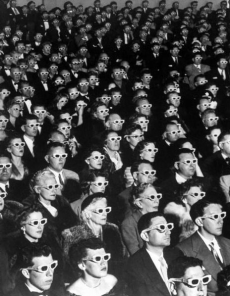
In the last article on control theories, we looked at some early ideas about how social control could be achieved and maintained, which would prevent people from turning to crime. This idea of trying to understand how to control individuals is important as it may offer the solution to stopping crime for good. While many other theories may prevent reoffending and may explain how to react to crime when it actually does happen, this one is actually pro-active as it suggests it is possible to eliminate crime for good if we can understand and employ social control mechanisms on everyone in a community. In this article we’re going to have a closer look at more complex theories of social control.
Hirschi suggested that there were four parts to social control. This was known as social bond theory. Firstly, he suggested that we require attachment. This means that we have to internalise the norms of society and accept the way that society is run. If we can do this then we will feel anxious when not fitting in with these norms and will care more about the opinions of other society members and not want to be disapproved of by them. Secondly, he suggested that we need commitment. This refers to the investments that we make in our life. Hirschi believed that if we were not committed to anything in society then we would have nothing to lose from committing crime. However, if you were doing well in school and were on the path to going to university, or to getting a prestigious sports scholarship, then you would not commit crime, because you risk losing all of the great things that you already have. Thirdly, Hirschi believed in the importance of involvement. He believed that if people were engaging in conventional activities, then they would have no time to commit crime. However, people who are doing nothing all day and are bored, will look to crime as a way to make life more exciting and as an interesting way to spend their time. Finally, Hirschi stressed the importance of belief. He thought that if we believed strongly in conventional values and ways of life then we would want to promote them, not hinder them. An example of this is that if an individual understands that stealing will take money away from shopkeepers, who need it to live, then they may accept the validity of the system and will not feel like they want to steal, as they want to preserve societal happiness.
In terms of how these ideas affect the real world, the latter part, belief, can be achieved by instilling an understanding of fairness, morality and responsibility in children. Attachment can be achieved through spending much quality time with the family and other members of the community, so that strong ties can grow. Commitment can be achieved by school teachers working to promote a belief in future success if children work hard and by letting children get involved in activities, so that they can develop passion for these. This last point will also help to improve involvement, since if children are always doing other activities, such as sports or after-school clubs, they will have no time to learn criminal skills and values.
This theory of self-control seems like it makes a lot of sense and has some useful ideas for how we can give children self-control, but in the next article we’ll look at the importance of maintaining self-control across the lifespan and whether it can be improved later on in life.
Image from: http://i.imgur.com/SXknY.jpg

0 Comment:
Be the first one to comment on this article.